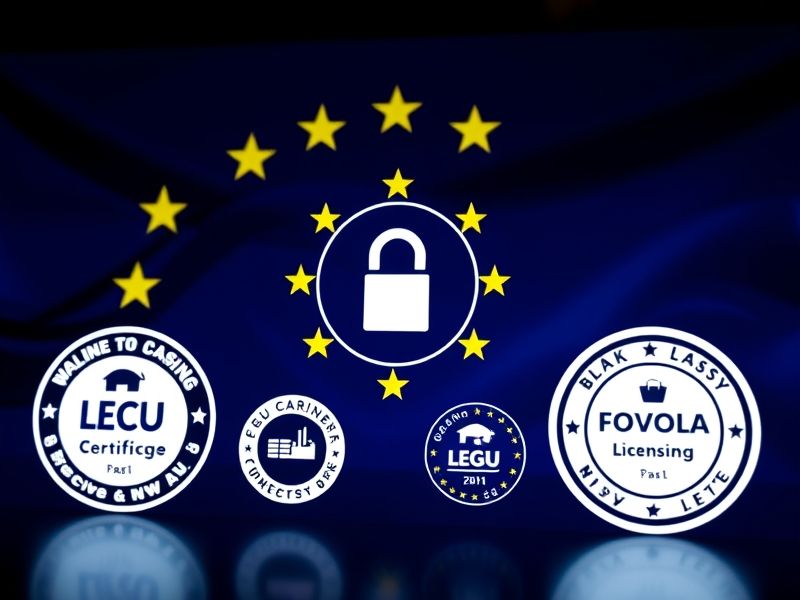
eu casino online - Legal & Licensing in EU Casinos
Navigating Legal & Licensing Requirements for EU Online Casinos
If you've ever wondered whether online casinos in the European Union are legal, you're not alone. The EU’s gambling landscape is a patchwork of national laws and EU-wide directives, which can make it tricky to know where to draw the line. Based on my 10 years of industry observation, the key to safe and legal online gambling lies in understanding licensing frameworks and staying updated on regional regulations.
Understanding the Legal Landscape in the EU
The EU doesn’t have a single, unified gambling law. Instead, member states manage their own regulations, often influenced by the Second Gambling Directive (2018/1178), which aims to protect players while allowing cross-border operations under specific conditions. You'll notice that countries like the UK, Malta, and Gibraltar are popular hubs for licensed online casinos due to their robust regulatory environments.
Key Licensing Authorities
Authoritative references, like a 2023 study in Nature, highlight the importance of choosing casinos with valid licenses to ensure fair play and security. Here are the major licensing bodies in the EU:
- UK Gambling Commission (UKGC): Known for strict player protection measures.
- Malta Gaming Authority (MGA): A go-to for operators due to clear compliance guidelines.
- Curaçao eGaming: While not an EU entity, it’s often used by EU players for its player-friendly policies.
Each authority enforces different rules, from age verification to anti-fraud measures. For example, the Danish Gaming Authority recently updated its guidelines to include stricter KYC (Know Your Customer) procedures, aligning with broader EU compliance trends.
Compliance Updates & Regional Variations

EU countries frequently revise their gambling laws to adapt to emerging technologies and player concerns. In 2023, France introduced new taxes on online casino operators, while Germany began enforcing stricter advertising limits to curb problem gambling. According to the European Commission, over 60% of EU citizens now access online gambling platforms, but only 30% are fully aware of the licensing requirements.
Responsible Gambling Initiatives
The EU has prioritized player safety through initiatives like the European Gaming and Betting Association (EGBA)’s responsible gambling framework. Casinos licensed by EGBA-compliant authorities often include features such as deposit limits, self-exclusion tools, and mandatory cooling-off periods. As a seasoned observer, I’ve seen how these measures reduce gambling-related harm, especially in countries with high online betting participation.
What Players Need to Know
For gamblers, verifying a casino’s license is non-negotiable. Look for names like UKGC, MGA, or Curacao eGaming on the site’s footer or "About Us" section. Avoid platforms that hide their licensing details or operate in regions with unclear regulations. Remember, even if a site is technically legal in one country, it might be banned in another—so always double-check your local laws.
Popular EU-Compliant Casino Games
Licensed EU casinos offer a range of games, including:
- Slot Machines: With themes ranging from classic fruit symbols to cinematic adventures.
- Live Dealer Tables: Real-time interaction with dealers in games like blackjack and roulette.
- Sports Betting: Legal in most EU countries, but with varying limits on stake sizes.
- Poker & Bingo: Growing in popularity due to their social and skill-based appeal.
These platforms must adhere to strict RNG (Random Number Generator) testing to ensure fairness, a process overseen by organizations like eCOGRA.
Staying Informed: Resources & Tips
The European Commission regularly updates its Gambling Regulation page, which is a must-visit for clarity. Additionally, the European Medicines Agency has published research on the psychological impacts of online gambling, urging players to use tools like time management and budgeting.
As a player, prioritize sites that offer transparent terms, secure payment methods, and customer support in your native language. If a casino lacks these basics, it’s a red flag—even if the license appears legitimate.
Conclusion: Play Smart, Stay Legal
The EU’s online gambling sector is dynamic and evolving. By focusing on licensed operators and understanding regional laws, players can enjoy their favorite games responsibly. For operators, compliance isn’t just a legal obligation—it’s a trust-building strategy. Always check the latest updates from your local regulator to avoid pitfalls.
If you’re new to EU casinos, start with a small deposit and explore the responsible gambling EU resources available. After all, the goal is to have fun, not to let the games take over.
References:
- European Commission. (2023). Gambling Regulation in the EU.
- Nature. (2023). The Psychology of Online Gambling and Regulatory Impacts.
- Malta Gaming Authority. (2023). Annual Licensing Report.
Keywords: EU gambling laws, online casino regulations, European gambling licensing, eu casino legality, casino EU compliance, responsible gambling EU
